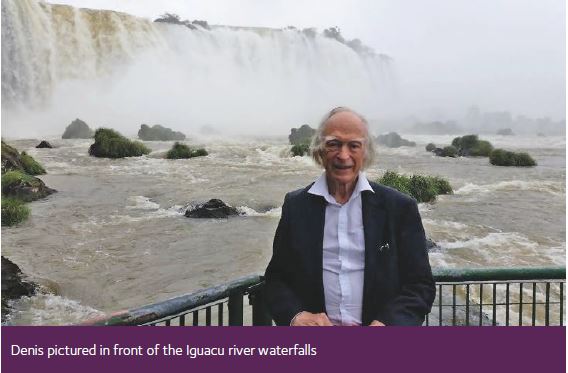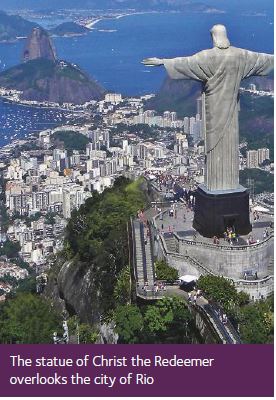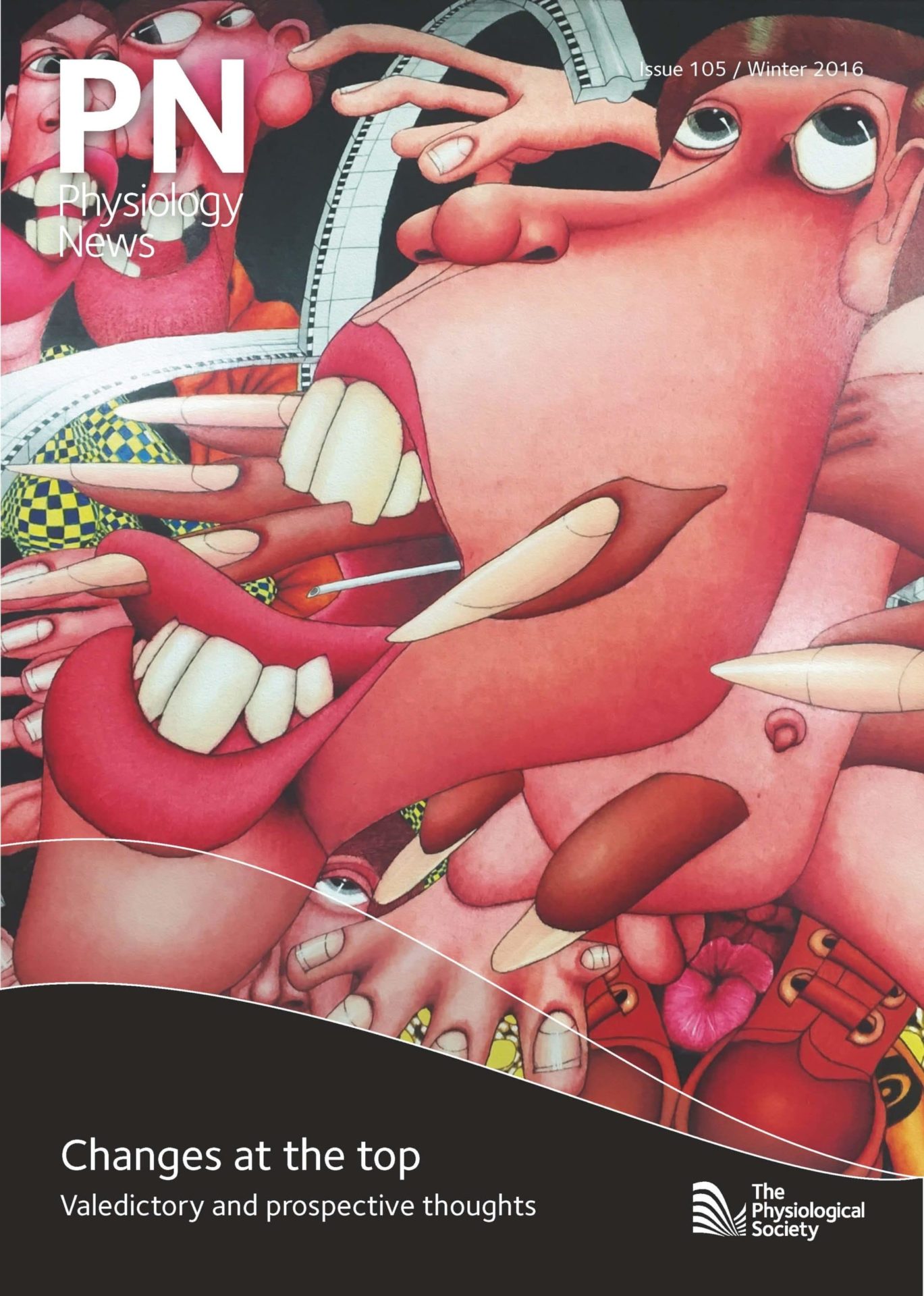
Physiology News Magazine
A cascade of falling dogmas? Brazil 2017 beckons with the theme The Rhythms of Life
1–5 August 2017, RIOCENTRO Exhibition & Convention Centre, Rio de janeiro, Brazil
Events
A cascade of falling dogmas? Brazil 2017 beckons with the theme The Rhythms of Life
1–5 August 2017, RIOCENTRO Exhibition & Convention Centre, Rio de janeiro, Brazil
Events
Denis Noble
Department of Physiology, Anatomy & Genetics, University of Oxford, UK
https://doi.org/10.36866/pn.105.20
On the border between Argentina and Brazil the Iguacu River (I-guacu is literally ‘large river’ in the local indigenous language) cascades down from a plateau in a series of spectacular waterfalls. Getting right up close to one of the largest drops I felt the thunderous noise and the fine spray as I watched it descend into the The Devil’s Throat, where I was a few minutes previously, perched on the edge of the next big drop.
I had just lectured to a packed-out hall in a conference of the Brazilian equivalent of Experimental Biology, where, as in the USA, physiology plays a big role in these conferences. The theme of my lecture was the cascade of falling dogmas in biology as physiology moves back onto centre stage,
so I naturally reflected on the metaphor of the waterfall cascade.
Two days earlier I was in Sao Paulo for the meeting of the International Scientific Program Committee for the 38th IUPS World Congress to be held in Rio de Janeiro on 1–5 August 2017. This meeting will also be the Annual Meeting of The Physiological Society, and of the Scandinavian Physiological Society. In fact, the world of Physiology is co-operating splendidly in the organization and financing of the Congress, with sponsorship of symposia and awarding of travel grants from many more of the IUPS national member societies. There is no doubt therefore that a first class program is being constructed. Five international experts, leaders in the field of Physiology, have been selected as Plenary Speakers. These include Ada Yonath from Israel talking on the hot topic of resistance to antibiotics with her thoughts about the future; Amira Klip from Canada on the way in which immune cells co-opt metabolism to cause insulin resistance; and Yasushi Miyashita from Japan talking on neural dynamics of cognitive memory system in the primate.

The list of plenary speakers also includes two from the UK: David Eisner on the ups and downs of calcium in the heart, and Daniel Martin on physiology at extreme altitude. Joining this prestigious group will be a stellar list of Keynote Speakers covering a wide range of physiological topics, which will include speakers from Brazil, Denmark, Argentina, USA, Belgium, South Africa, Italy, South Korea and France, illustrating just how worldwide the Congress will be. The Scientific Programming Committee is in the process of selecting 60 symposia from over 120 submissions to provide a broad and illuminating perspective of physiological science to this Congress.
The range of topics illustrates the growing strength of our discipline as it moves back onto centre stage in the biological sciences. This is therefore a good time to celebrate the ‘Health of Physiology’ to quote the important Report recently published by The Physiological Society (www.physoc.org/health-physiology-0). As IUPS President I have been lecturing all over the world on the ways in which the study of biological function, which is what physiology is about, has become relevant to core concepts in modern biology, including notably evolutionary biology. Many of the Conferences at which I have lectured have not been specifically billed as physiology, but that also illustrates a modern trend. Physiology permeates many cognate disciplines. The topics chosen for the lectures and symposia for Brazil 2017 also illustrate that trend. I find that these reactions worldwide fully bear out the general conclusions of the Health of Physiology Report.
I therefore strongly recommend readers of Physiology News to come to Brazil in August of next year to take part in this worldwide celebration of our discipline.
Rio itself is well-known as a spectacular city. It was the site of the recent Olympic Games, which were such a success for British athletes. The advantages of that success are that the Congress facilities in Rio have been greatly upgraded. Rio is more than ready to welcome the world of Physiology next year. And why not also take a family holiday while in Brazil? As my experience of the Iguacu Falls shows, Brazil, and South America generally, have many attractions to offer.
The Congress Website is already open to early registrations: www.iups2017.com

